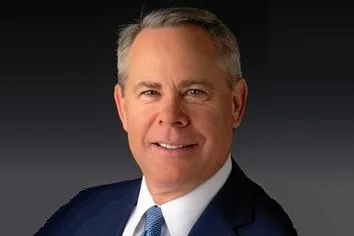US top wind energy operator confident project pipeline free from Trump ire
NextEra Energy's CEO John Ketchum told analysts that its 30GW already in construction should safely take it to 2029

The largest US wind operator NextEra Energy told analysts that its 30GW pipeline of renewables projects already in construction or otherwise safe harboured should take it all the way through Donald Trump’s term, insulating it from the President’s hostility.
Trump is a long-time renewables foe, and at his behest, the Republican-dominated Congress passed the ‘big beautiful budget’ bill (BBB) that tightens wind developers’ access to critical tax credits.
“The ‘one big beautiful’ act was tough, but constructive, providing for a phase out of wind and solar tax credits over time,” CEO John Ketchum said during Wednesday’s earnings call.
The BBB requires projects either begin construction by 4 July 2026 or enter service 31 December 2027.
If the first deadline is met, either by conducting substantial construction work or by spending at least 5% of total Capex, then wind projects would have four years of safe harbour to begin operations.
As NextEra is “in a constant state of construction,” Ketchum said, it has “made substantial financial commitments to begin construction on renewable projects that we believe are sufficient to cover the projects we plan to place into service through 2029.
“We've made significant financial commitments over the last few years, including in the first half of 2025 to begin construction under these rules that were in effect at the time those commitments were made.”
“We can't provide any guarantees,” he cautioned, adding: “This is our interpretation, and this is our belief as to what the statute provides, based on our experience In this industry over the last couple of decades.”
The strictures of the law may even work to the developer’s advantage by sweeping the field of weaker competitors.
“There might be less competition from folks that have not safe harbored that could create bigger opportunities for folks like NextEra that are in a perpetual state of construction and are, are safe harboring all the time,” he added, creating “bigger opportunities for us.”
NextEra Energy operates over 75GW of energy capacity including gas, nuclear, and renewables, with 250GW in its development pipeline.
In Q2, its adjusted income rose 10% to $2.1bn, while earnings per share were up 9%.
It also owns Florida Power & Light, the top electric utility in the state and largest in the US by customers served and power sales, which also saw earnings rise 3% to $1.27bn.
Ketchum is a strong advocate for wind and solar as the only options for meeting the nation’s surging short term energy needs.
“New gas and nuclear are on the way and will be critical to meeting demand over the long term,” he said, while “renewables and storage can bridge the gap and will play an important role in an all of the above future.”
Confidence in system?
NextEra’s faith in the system might be shaken by Trump, however, and Ketchum noted that “although there is more certainty with the passage of the bill, we will need to manage that against a backdrop of executive orders, agency rule makings, tariffs and trade actions.”
Following the BBB’s passage, the President issued an executive order (EO) that gives the Treasury Department 45-days to issue new regulations on “start of construction” as well as on ‘foreign entities of concern’ (FEOC) rules that could derail NextEra’s plan. FEOC stipulations are aimed at limiting Chinese access to US development.
The deadline will come in mid-August.
“The ‘begin construction’ term has been around for well over a decade. It has a settled meaning within the industry,” Ketchum told analysts, and “is informed by long standing Treasury Department guidance.”
The Department of Interior also issued regulations that deprioritise wind and solar permitting on federal lands while demanding the secretary personally sign off on an extensive list of minute actions that many fear will bury developers in red tape.
“It's new, obviously, we're working with the Department of Interior. Let's just see how it actually is applied in practice,” Ketchum said, while asserting the he feels “comfortable with where we stand in terms of being able to navigate the federal permitting issue.”
The stock market was less convinced, and despite delivering solid Q2 results, its share price dipped over 6% yesterday and continues to decline today.
(Copyright)